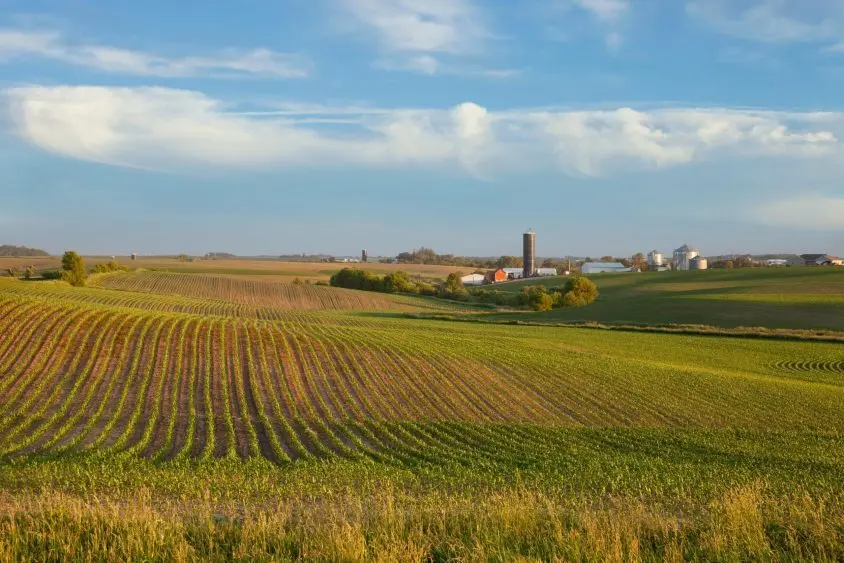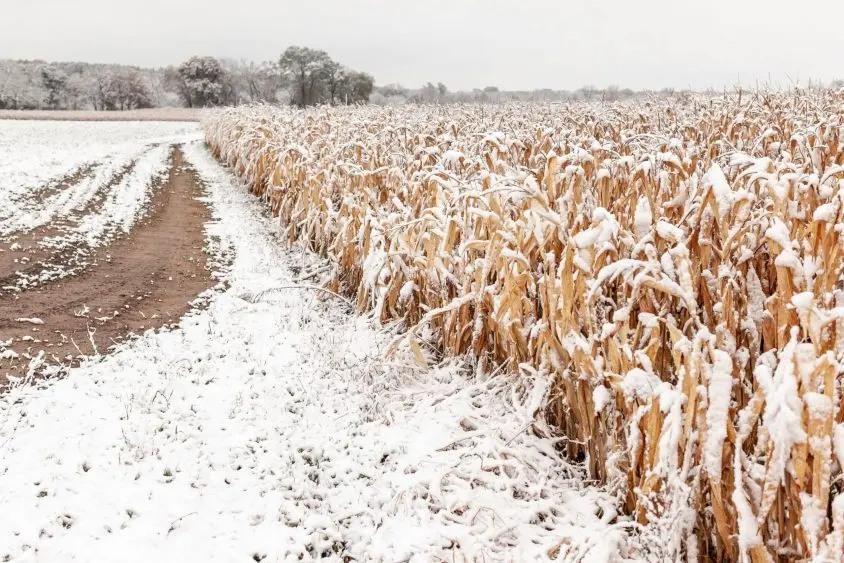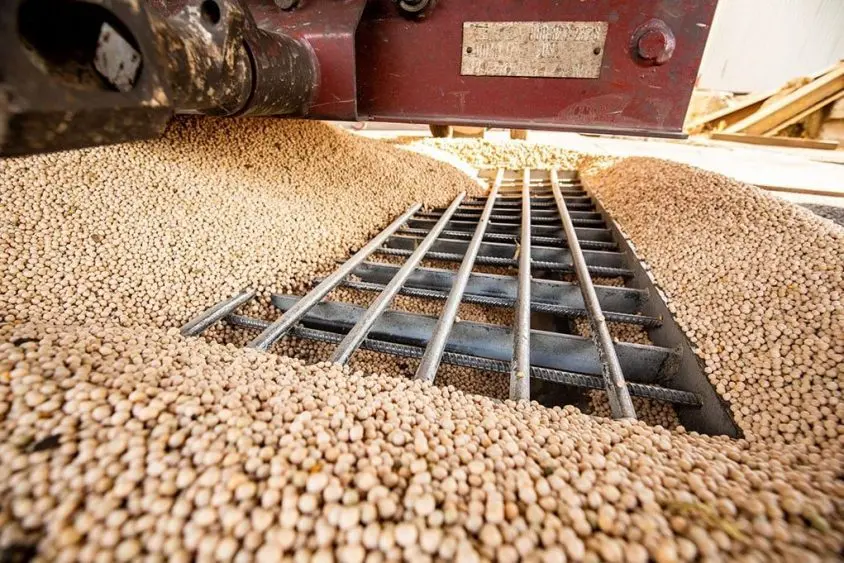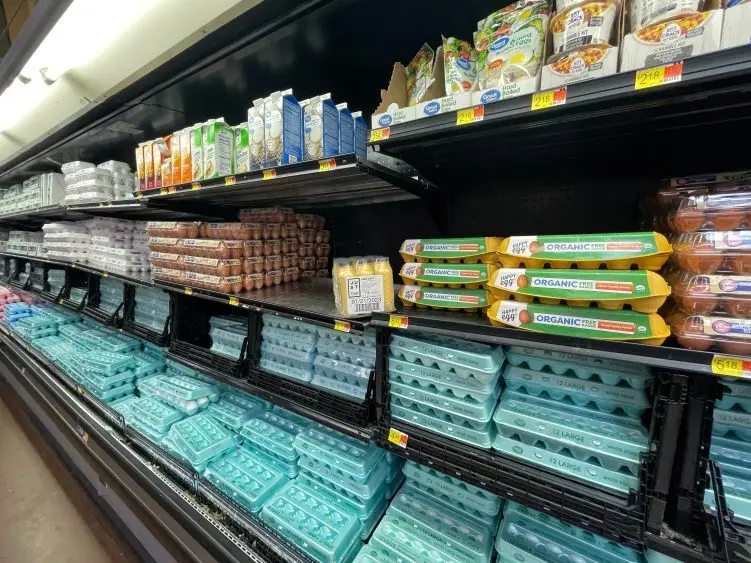(WASHINGTON D.C.) — On Wednesday, the House Agriculture Committee passed its portion of the reconciliation package on a party line vote of 29-25. The measure now heads to the House Budget Committee for a full markup of the reconciliation bill on Friday.
The legislation is set to include one of the largest overhauls to the Supplemental Nutrition Assistance Program (SNAP) along with some key farm bill programs, as Republicans try to find a way to pay for the domestic policy megabill that has been hailed as the “One Big, Beautiful Bill.”
“Our section of the One Big, Beautiful Bill restores integrity to the Supplemental Nutrition Assistance Program, provides relief to farmers, invests in the future of rural America, and prevents the largest tax increase on American families,” said House Agriculture Committee Chairman Glenn “GT” Thompson (PA-15) in a statement. “We ensure that SNAP works the way Congress intended it to, by reinforcing work, rooting out waste, and instituting long-overdue accountability incentives to control costs and end executive and state overreach.”
Thompson added “We preserve the program’s ability to serve the most vulnerable long into the future. At the same time, we’re strengthening the farm safety net and delivering critical support to the farmers, workers, and communities that keep America fed. These commonsense solutions help build a stronger, more resilient rural America. I’m grateful to my colleagues on the Committee for their hard work, and I look forward to passing this bill in the House and delivering results for families across the country.”
Democrats on the House Agriculture Committee continued to voice their concerns on the overhaul to the SNAP program throughout this week’s markup process in committee. “While Democrats showed up to this two-day hearing ready to work, Republicans hardly showed up at all,” said House Agriculture Committee Ranking Member Angie Craig (MN-02). “When their seats weren’t empty, they were silent. And the silence was deafening. They know that you can’t cut $300 billion from food assistance for hungry children and seniors without taking their food away. The cuts are so egregious that the majority shut down the markup with 44 amendments left to debate, the only committee to use this tactic to cut off democratic debate on critical issues facing families and farmers across the country.”
Craig and other Democrats contend that the Republican led bill slashes food assistance and funds tax breaks for the wealthy. They also say it damages the farm bill coalition and the chances of passing the remaining portions of a Farm Bill later this year.
“This bill shatters the farm bill coalition, making the path to passing a full, five-year farm bill much harder because there will be no full farm bill to pass – the Republicans tore off bits and pieces of it and left the rest at the wayside,” said Craig. “Republicans voted to take food from families struggling to afford groceries and give more handouts to those at the very top. That is a damn shame.”
Politico reports that the proposal establishes a cost-sharing approach for states with a baseline of 5 percent of SNAP benefit costs and using a sliding scale based on their payment error rates. Beginning in fiscal year 2028, states with payment error rates between 6 percent and 8 percent would pay for 15 percent of SNAP, states with error rates between 8 percent and 10 percent would pay for 20 percent and those with error rates above 10 percent are on the hook for 25 percent of benefits.
The anticipated $300 billion in savings is also more than the original target of $230 billion, which Politico also reports will give House Republicans room to include a $60 billion Farm Bill package within the megabill.
There is no word yet on how members of the Senate will handle any House passed reconciliation package. In a statement, U.S. Senate Committee on Agriculture, Nutrition, and Forestry Chairman John Boozman (R-AR) said “I applaud Chairman Thompson’s leadership in advancing these provisions and taking this critical step to prevent a tax increase on hardworking farmers, ranchers and producers. We share the same goal to deliver on President Trump’s agenda and address the immediate challenges facing farm country. The Senate will carefully consider the House’s approach to achieve this. Improvements to SNAP are crucial to be good stewards of taxpayer dollars. It is reasonable to expect working-aged adults who receive SNAP to participate in the workforce. I look forward to working with committee members and Senate leadership as this process moves forward.”
Other reaction has been coming in following the House Agriculture Committee passage of their reconciliation markup. National Association of Wheat Growers (NAWG) President Pat Clements said in a statement that “NAWG appreciates Chairman Thompson’s leadership in advancing these critical investments in the farm safety net, conservation, trade, research, and other programs. This legislation reflects many of the key priorities that America’s wheat growers have been advocating for over the past three years. It is essential that these improvements to the farm safety net remain intact as Congress continues through the reconciliation process.”
Clements added that “While the committee bill does not include all of NAWG’s Farm Bill priorities, it does work to protect and enhance the crop insurance program, provide a meaningful increase in the Price Loss Coverage (PLC) program, double funding for the Market Access Program (MAP) and Foreign Market Development (FMD) program, and invest in agricultural research. Congress must act this year to strengthen the farm programs to provide farmers with a robust safety net and long-term certainty. Farmers need these improvements this year, not next year.”
National Farmers Union (NFU) President Rob Larew said in a statement that “we appreciate that the House Agriculture Committee recognizes the financial pressures facing family farmers and ranchers. Proposals to strengthen crop insurance, bolster the farm safety net, and maintain voluntary conservation programs are important steps toward securing the future of our food system. But this is not the best way to produce a meaningful farm bill. Our members know that the process matters. Pitting farm and nutrition priorities against one another creates unnecessary division and weakens the broader effort. A strong farm bill—however it comes together—must reflect the full scope of challenges facing agriculture and rural communities, and it must work for everyone it touches: farmers, ranchers, and families across the country.”
Also, National Cattlemen’s Beef Association applauded the news with many key NCBA priorities included in the legislation. “Cattle farmers and ranchers across the country have continued advocating for tools that protect the cattle industry from foreign animal disease and help producers recover from the loss of their cattle, whether by predator depredation or challenging weather conditions. This legislation is a critical step forward for addressing these issues,” said NCBA Senior Vice President of Government Affairs Ethan Lane. “NCBA appreciates the support of the House Agriculture Committee and Chairman GT Thompson, who continues being a champion for the cattle industry. We urge the full House and Senate to quickly pass this bill so President Trump can sign it into law.”
Illinois farmer and National Corn Growers Association President Kenneth Hartman Jr also stated that NCGA “appreciate Chairman Thompson’s efforts to include key agricultural investments in must-pass legislation.”



